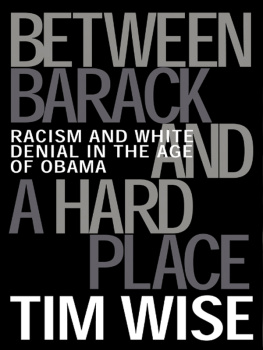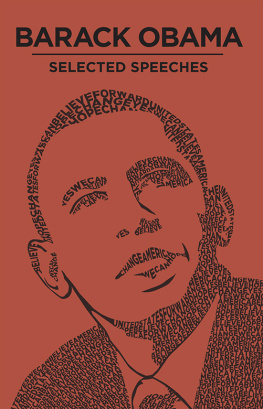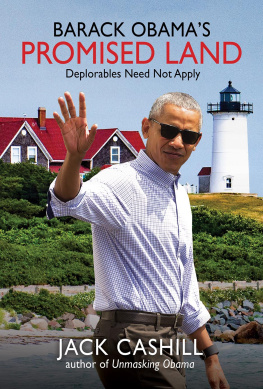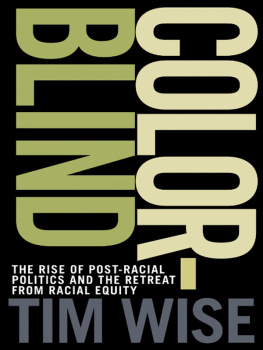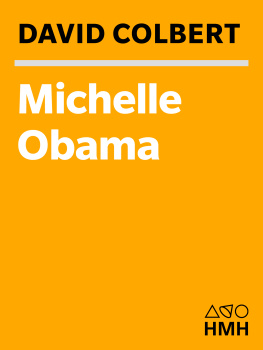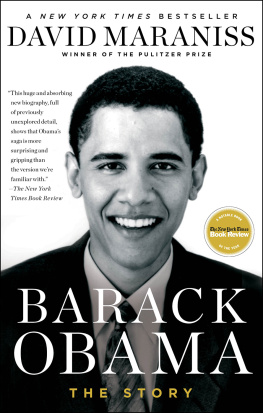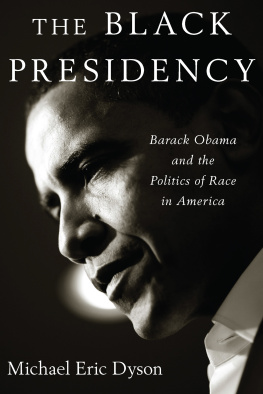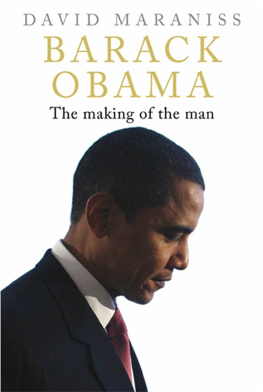City lights books. - Between Barack and a hard place: racism and white denial in the age of Obama
Here you can read online City lights books. - Between Barack and a hard place: racism and white denial in the age of Obama full text of the book (entire story) in english for free. Download pdf and epub, get meaning, cover and reviews about this ebook. City: San Francisco, year: 2009, publisher: City Lights Publishers, genre: Politics. Description of the work, (preface) as well as reviews are available. Best literature library LitArk.com created for fans of good reading and offers a wide selection of genres:
Romance novel
Science fiction
Adventure
Detective
Science
History
Home and family
Prose
Art
Politics
Computer
Non-fiction
Religion
Business
Children
Humor
Choose a favorite category and find really read worthwhile books. Enjoy immersion in the world of imagination, feel the emotions of the characters or learn something new for yourself, make an fascinating discovery.
- Book:Between Barack and a hard place: racism and white denial in the age of Obama
- Author:
- Publisher:City Lights Publishers
- Genre:
- Year:2009
- City:San Francisco
- Rating:5 / 5
- Favourites:Add to favourites
- Your mark:
- 100
- 1
- 2
- 3
- 4
- 5
Between Barack and a hard place: racism and white denial in the age of Obama: summary, description and annotation
We offer to read an annotation, description, summary or preface (depends on what the author of the book "Between Barack and a hard place: racism and white denial in the age of Obama" wrote himself). If you haven't found the necessary information about the book — write in the comments, we will try to find it.
How Barack Obamas rise is reshaping the meaning of race in the United States today.
Between Barack and a hard place: racism and white denial in the age of Obama — read online for free the complete book (whole text) full work
Below is the text of the book, divided by pages. System saving the place of the last page read, allows you to conveniently read the book "Between Barack and a hard place: racism and white denial in the age of Obama" online for free, without having to search again every time where you left off. Put a bookmark, and you can go to the page where you finished reading at any time.
Font size:
Interval:
Bookmark:

PRAISE FOR TIM WISE
Tim Wise is one of the most brilliant, articulate and courageous critics of white privilege in the nation. His considerable rhetorical skills, his fluid literary gifts and his relentless search for the truth make him a critical ally in the fight against racism and a true soldier in the war for social justice. His writing and thinking constitute a bulwark of common sense, and uncommon wisdom, on the subject of race, politics and culture. He is a national treasure.
Michael Eric Dyson, University Professor, Georgetown University, and best-selling author of more than a dozen books on race.
Tim Wise is one of those rare public intellectuals that numerous authors have suggested are becoming extinct in this society. He is evidence that this is not the case in my judgment, he is the very best of the white anti-racism writers and commentators working in the U.S. media today.
Joe Feagin, Graduate Research Professor of Sociology, Texas A&M, and author of more than twenty books on race issues.
(Wises) work is revolutionary, and those who react negatively are simply afraid of hearing the truth.
Robin D.G. Kelley, Professor of History, University of Southern California, author of Race Rebels, and Yo Mamas Disfunktional!
One of the brilliant voices of our time.
Molefi Kete Asante, Professor of African American Studies, Temple University, creator of the first doctoral program in African American Studies in the United States.
Wise is the nations leading antiracist author/activist.
David Naguib Pellow, professor of Ethnic Studies, University of Minnesota.
(His) is the clearest thinking on race Ive seen in a long while written by a white writer right up there with the likes of historians Howard Zinn and Herb Aptheker as far as Im concerned.
Dr. Joyce King, Associate Provost, Medgar Evers College, Brooklyn, NY.
BETWEEN BARACK
AND A HARD PLACE
Racism and White Denial in the Age of Obama
Tim Wise

CITY LIGHTS BOOKS / OPEN MEDIA SERIES
San Francisco
Copyright 2009 by Tim Wise
All Rights Reserved.
The Open Media Series is edited by Greg Ruggiero and archived by the Tamiment Library, New York University.
Cover design: Pollen
Library of Congress Cataloging-in-Publication Data
Wise, Tim J.
Between Barack and a hard place : racism and white denial in the age of Obama / by Tim Wise.
p. cm.
Includes bibliographical references.
ISBN 978-0-87286-500-6
1. WhitesRace identityUnited States. 2. WhitesUnited States Attitudes. 3. RacismUnited States. 4. United StatesRace relations. 5. Obama, Barack. I. Title.
E184.A1.W57 2009
305.800973dc22
2008048296
City Lights Books are published at the City Lights Bookstore,
261 Columbus Avenue, San Francisco, CA 94133.
www.citylights.com
Contents
Preface
On November 4, 2008, at a little after 10:00 p.m. Eastern Standard Time, television networks began announcing the big news: Senator Barack Obama had been elected 44th president of the United States, thereby becoming the first person of color to win the office in the nations history. Immediately, discussion turned to the historicity of the moment, and with good reason. For a nation built on a foundation of slavery, disenfranchisement, and white domination, the election of a man of color (and a man who, according to the racial taxonomy that has long existed in the United States, is indeed black) to the highest office in the land, is of no small import.
Millions of new voters, especially voters of color, had turned out in record numbers to cast their ballots for Barack Obama. In the days that followed, African American men and women who thought this moment might never happen, spoke of the pride they felt, having come so far in the past four decades, from a time when merely registering black people to vote could and did result in death. That Obamas victory says something about the United States, and about race and racism in this nation, is hard to deny.
But what it says, and what it doesnt say, is ultimately not determined by the feelings of voters, however joyful they may be about Obamas victory. What Obamas political rise says about racism in America is to be determined by an honest appraisal of the real conditions on the ground in this place, not for Barack Obama, but for approximately 90 million persons of color in all: black, Latino, Asian American and Pacific Islander, indigenous persons, and Middle Easterners. When that appraisal is conducted, the racial and ethnic reality of the United States is sure to be seen as far more complex than some might like to think. For while the individual success of persons of color, as with Obama, is meaningful (and at this level was unthinkable merely a generation ago), the larger systemic and institutional realities of life in America suggest the ongoing salience of a deep-seated cultural maladyracismwhich has been neither eradicated nor even substantially diminished by Obamas victory.
Herein I will explore what the political ascent of Barack Obama might mean, and more importantly what it doesnt mean, about race, about the power of whiteness in early twenty-first-century America, and about America itself. This I will do in the form of two essays, the first of which argues that contrary to the beliefs of many, the evidence is clear: systemic racial discrimination and profound inequity of opportunity continue to mark the lives of persons of color, Obamas own successes notwithstanding. Furthermore, not only does the success of Barack Obama not signify the death of white racism as a personal or institutional phenomenon, if anything, it may well signal the emergence of an altogether new kind of racism. Consider this, for lack of a better term, Racism 2.0, or enlightened exceptionalism, a form that allows for and even celebrates the achievements of individual persons of color, but only because those individuals generally are seen as different from a less appealing, even pathological black or brown rule. If whites come to like, respect, and even vote for persons of color like Barack Obama, but only because they view them as having transcended their blackness in some way, to claim that the success of such candidates proves the demise of racism makes no sense at all. If anything, success on these terms confirms the salience of race and the machinations of white hegemony. That 43 percent of whites voted for Obamamore than voted for any white Democratic candidate since Lyndon Johnson in 1964is impressive, to be sure, but perhaps less so than many would like to think.
In short, the 2008 presidential election may not have been a contest in which racism was vying against anti-racism, so much as one in which two different types of racism were competing for predominance. On the one hand was old-fashioned bigotry, or Racism 1.0, which could have caused enough whites to vote against Obama for racial reasons as to have ensured his defeat. This is the kind of bigotry that has long marked the nations history: the kind that, in its most extreme moments has precipitated racist murder, lynching, and terror on a grand scale; the kind that led to dozens of white-on-black riots in city after city for much of the early 1900s; the kind that precipitated restrictive covenants and neighborhood improvement associations to block persons of color from moving into white neighborhoods; the kind that even now animates hate groups and hate crimes when taken to its illogical conclusion. It is racism with which we are, as a nation, familiar, even if we remain sadly nave as to the depths of its depravity. And that familiarity allows us to know it when we see it, as we occasionally did in the run-up to the election, in hostile and unhinged e-mails attacking Obama for racial or religious reasons, or in Internet videos showing blatantly racist supporters of Obamas opponent, Senator John McCain, engaged in only the most thinly veiled racist invective. On the other hand, however, was Racism 2.0a far less easily recognized typewhich could allow him to win the presidency, but only because of his ability to ease white fears and transcend his still-problematic blackness, biracial though it may be. While Racism 1.0 appears to have suffered a defeat this time outand for that, we can all be gratefullet us not overlook the possibility that Racism 2.0 may have been in full effect, and ultimately the reason for Obamas victory. And if that is truea subject we will explore shortlythen there remains a great amount of work to be done.
Next pageFont size:
Interval:
Bookmark:
Similar books «Between Barack and a hard place: racism and white denial in the age of Obama»
Look at similar books to Between Barack and a hard place: racism and white denial in the age of Obama. We have selected literature similar in name and meaning in the hope of providing readers with more options to find new, interesting, not yet read works.
Discussion, reviews of the book Between Barack and a hard place: racism and white denial in the age of Obama and just readers' own opinions. Leave your comments, write what you think about the work, its meaning or the main characters. Specify what exactly you liked and what you didn't like, and why you think so.

